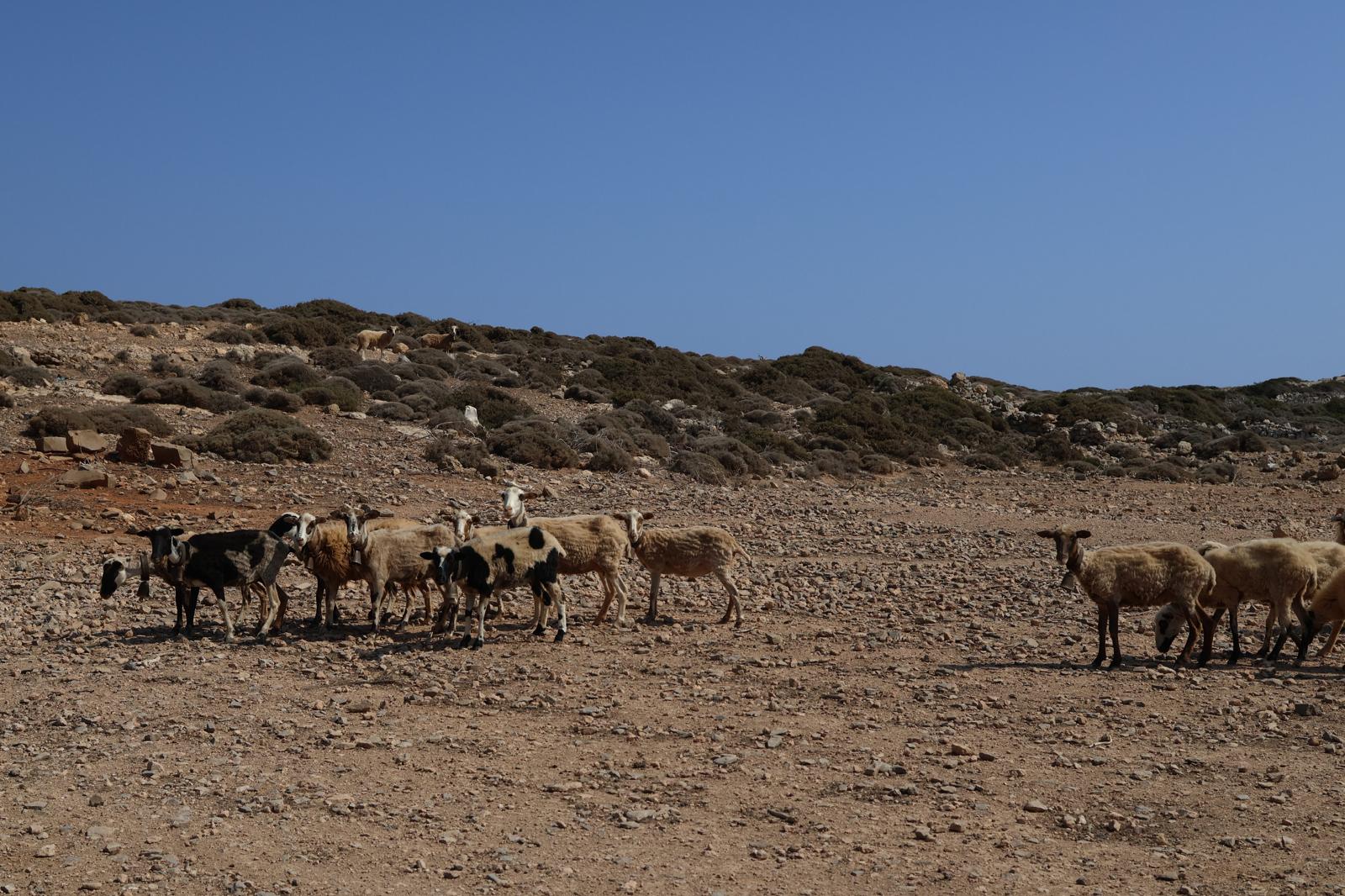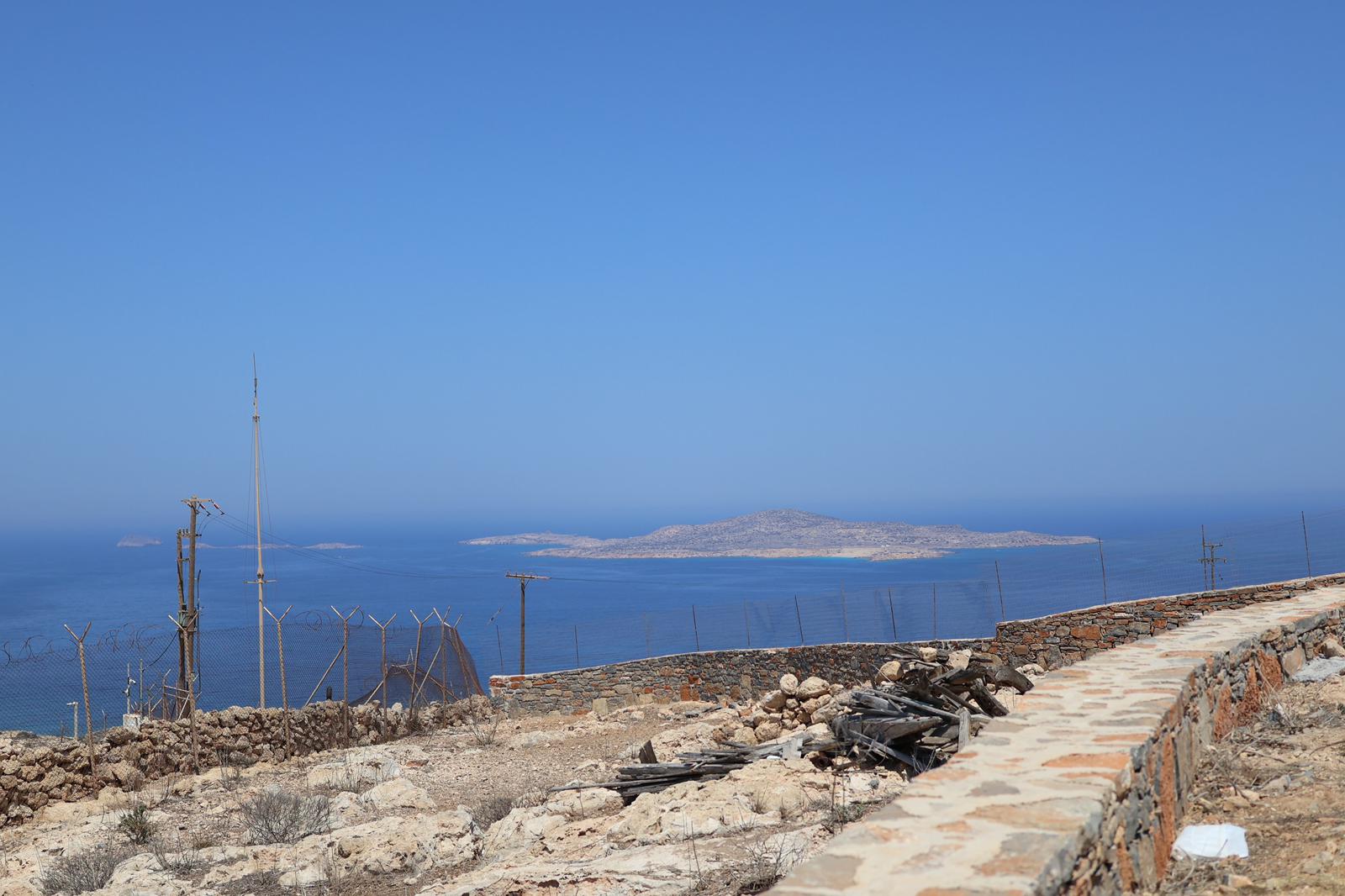“Kassos has it the worst” : the development of the island far from plain sailing

Strong winds, droughts and an ageing population: Kasos is facing numerous challenges on an economic, ecological and social level. Issues which the agronomist Giorgos Paliouras is trying to tackle. Between the difficulties of finding people and the immensity of the task, he talks about the many obstacles of development projects on the island.
Kasos: an idyllic Greek island in the heart of the Agean Sea, mostly known for its beautiful beaches, charming villages and breathtaking landscapes. On the surface, everything seems like tranquillity and bliss. But, as always, there is another side to every coin: for many years, Kasos has been facing numerous issues, on a economic, ecological and social level. Issues which heavily contrast with the idyllic impression the island makes. One person who knows these challenges from the back of his hand is Giorgos Paliouras, an engineer in agronomics, originally from Athens. He is currently on the island for two months for a project looking to find solutions to the many problems Kasos is facing. We met him at the Café “Sweet Memory”, where, similarly to the situation on the island, there was a strong contrast between the idyllic traits of the café, with its colourful chairs and shady terrace and the heaviness of the conversation.
"We have very strong winds that go up to 100km per hour. We are looking for areas to plant trees to protect the island from the wind"
Due to its geographical location, the island of Kasos is faced with numerous ecological challenges. “We have very strong winds that go up to 100 km per hour. We are looking for areas to plant trees to protect the island from the wind”, explains Giorgos Paliouras. Another major issue that must be tackled is the water scarcity on the island. Kasos regularly suffers from intense droughts, particularly in the summer months. All year round, the lack of drinkable water affects the inhabitants of the island in their daily lives: for instance, the water out of the tap is not drinkable, making the Kasots having to rely on bottled water. To tackle this issue, Giorgos has suggested two solutions: “One thing we could do to solve the water issue is to take some sea water and make it drinkable [in a process called “desalinisation”].” However, this is highly costly and very energy-consuming. “Another solution is to get water from boreholes.” With this technique, one drills a deep hole in the ground in order to access the ground water. “More water tanks could also help to solve the problem”, he adds.
.jpeg)
Tackling the water problem would also help the agricultural sector. But here, water isn’t the only hurdle that needs to be surpassed, as Giorgios explains: “The soil in Kasos is not fertile. We therefore need to bring some organic material”. The near impossibility to grow food means that most of the food needs to be imported, making the island dependant on external actors. All these problems are far from unique to Kasos. “The other islands in the Aegean Sea have the same problem but Kasos has it the worst. It has the strongest winds and the most droughts”.
"The problem is not the money ; it's the lack of people. The issues that need to be tackled are pretty substantial and many people have no willingness to solve them."
He is not the only one who is trying to bring solutions to the islands. There have been many projects that have attempted to tackle the problems of Kasos, many of them unsuccessful, deplores Georgios. However, contrary to what one might think, the lack of funds isn’t the reason for the failure of most projects on the island. “The problem is not the money ; it’s the lack of people. The issues that need to be tackled are pretty substantial and many people have no willingness to solve them.“ In other words, according to Georgios, the people are aware of the issues but aren’t necessarily ready to do anything about it.
“The young people can’t stay here”
In addition to the ecological problems, the island has an ageing demographic, which doesn’t make things easier for ecological projects. Due to the lack of economic perspectives, but also social problems in relation to health and education, many young people leave the island. “The young people can’t stay here”.

This means that there are even less people available to participate in the projects to help the island. It Is therefore difficult to implicate the inhabitants of Kasos in the projects. Projects like the one from Giorgos are formed of people that come from outside Kasos. Also, there are many projects from the private sector that have been started from the island, one of which installed sports courts across the island to promote a healthy lifestyle. But even here, there is a lack of communication and coordination between the different projects. “Many people claim to do things for the island, but in reality, nothing much happens”, summarises Georgios. In short, many people have tried to bring solutions to the many issues that island is facing. Will a project, one day, be fruitful? Time will tell.
Text : Caroline Rayner, George Rampotas, Alex Tsekouras
Photos : Maëlle Laurent
